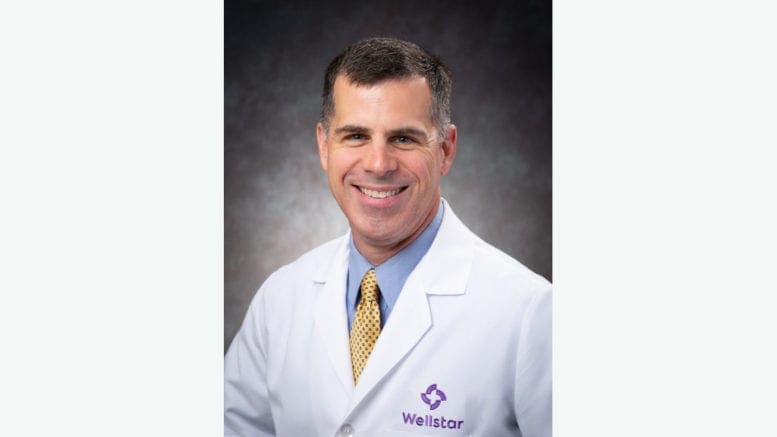By Mark Woolsey
Sending the kids back to school can be challenging for both parents and kids in the most normal of times. While chances are good the school day will look a lot closer to normal this year than in 2020, there are still concerns.
A number of them are in the health space and not all are COVID-related.
“It’s important for kids to be getting back into providers’ offices, seeing their pediatricians right now,” said Wellstar Pediatrician Dr. Andrew Doyle. “There are a lot of medical issues that need to be taken care of.”
First and foremost, Georgia schoolkids are required to have or be up to date on various vaccinations. COVID vaccines are not subject to those rules.
There’s also a new requirement for adolescents, he said.
If a child is 16 or over and entering 11th grade, they’re mandated to have completed one of the meningitis vaccine series, Doyle said. He added that the new requirement was supposed to have taken effect a year ago but the pandemic put it on hold.
He suggests having a list of questions to ask the pediatrician on vaccines, health-screening requirements and any other pending medical concerns. It’s also important to bring up potential learning disabilities.
Doyle said there are other health-related items that parents need to keep in mind, such as making ready to share medical and other important instructions with school health and administrative personnel and preparing and practicing good hygiene habits. That can include a discussion on mask wearing.
Back to school tips like those seem to carry extra weight this year.
As Doyle put it, “There is a lot of anxiety that I’ve noticed in my clinic this year with parents and students going to school because of how schools worked this past year. Many of them stayed at home all this past year and did remote learning and now they’re going back. I think there are also concerns about what are the schools are going to look like.”
He indicated there are also non-medical ways to mitigate the jitters and help put the focus on learning.
One way is to set routines that make it easier to transition to the school schedule.
He said to make sure youngsters get their recommended hours of sleep: 10-13 hours for preschoolers, 9-12 hours for those in grade school and 8-10 hours for teens.
“You’ll want to limit technology use before bedtime by removing devices from your child’s bedroom such as cell phones and video game consoles, he added.
Doyle also recommends setting up structure around completing various chores and assignments at home and to set home mealtimes to coincide with that of the schools. Establishing such good health habits as regular exercise and eating healthy meals also ranks high.
A similar tip involves role-playing what the school day looks like in advance.
“It’s having all the supplies you need and laying out the clothes and practicing getting up in the morning and going to school,“ said Doyle. “We even recommend perhaps that parents get into the habit the week before school starts of getting them up at the school time and having everything ready and following a daily schedule that meets what they’re going to have to do during school.”
Somewhat related to the role-playing notion is having parents check to see if they can get admission into their child’s campus before the year starts. That’s so students can walk around to see what classrooms and other facilities look like and where they’re located. He also recommends trying to meet with teachers in advance.
Then there are those housekeeping items of making sure any summer assignments are finished, and completing school registration.
With some students not having been in the classroom since March of 2020 and perhaps worried about that and other issues, Doyle encourages conversations between parents and students, with plenty of opportunity to ask questions.
“Addressing the anxieties and fears of what school is going to look like and making sure our child is comfortable and knows what to expect can go a long way toward helping them be comfortable,” the pediatrician said.
He said that can include talking about any fears surrounding COVID and school safety issues. Those range from possible school violence to knowing how to respond and head for fire exits in the event of a blaze. Such tips as making sure the child has memorized their home address and important phone numbers, reviewing transportation plans and encouraging them to always be aware of their surroundings apply.
“And if parents are concerned they should talk to the school and understand what’s the school’s procedure are for those kinds of situations, “he added.
He said proper preparation going into this year is especially important since last year was so abnormal for families.





